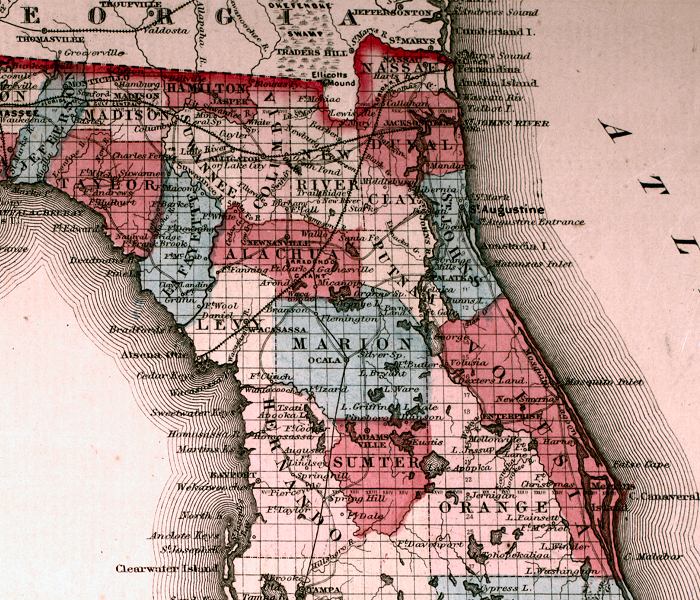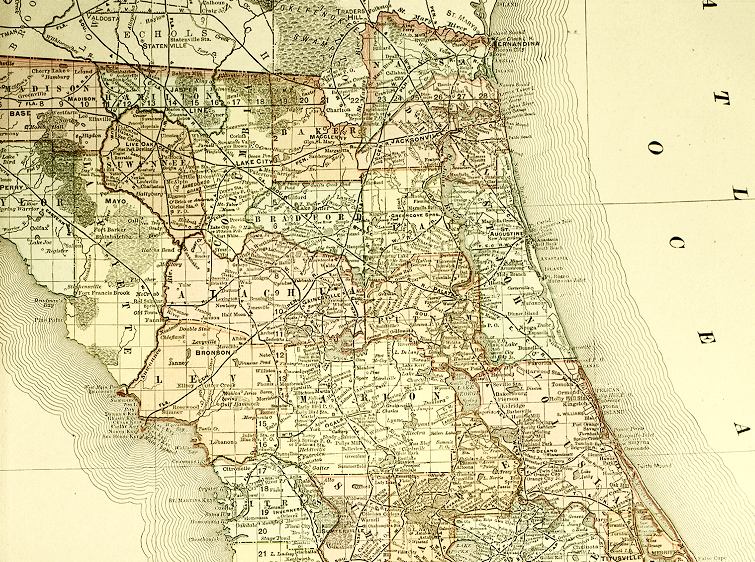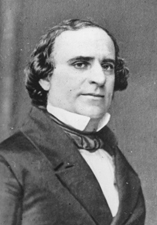History of Levy County
Levy County, in Florida's heartland, was officially established on March 10, 1845.Levy County was named in honor of David Levy Yulee, a prominent figure in Florida's history who served as a United States Senator and was instrumental in developing the state's railroad system. It was formed from part of Alachua County, highlighting its historical significance from its inception. The establishment of Levy County was part of a larger wave of county creation in Florida during this period, following the state's admission to the Union as the 27th state.

Early Development
The early economy of Levy County was driven by agriculture, timber, and naval stores, capitalizing on its fertile land and dense forests. The construction of the Florida Railroad in the 1850s, spearheaded by David Levy Yulee, connected Fernandina Beach to Cedar Key, transforming Cedar Key into one of the Gulf Coast's most important ports. This development was pivotal for the county, facilitating the export of timber, cotton, and later, phosphate, mined from the county’s rich deposits.
Maritime and Military Significance
During the Civil War, the importance of Cedar Key and Levy County’s coastal location was underscored as it became a target for Union blockades. Confederate and Union forces frequently skirmished over control of Cedar Key, a vital supply line for the Confederacy. Post-war, the county's maritime industry shifted focus from military to commercial fishing and sponge harvesting, contributing significantly to its economy.
Phosphate Mining Boom
The late 19th and early 20th centuries marked the phosphate mining boom in Levy County, drawing workers and boosting the local economy. Towns grew around mines and the railway lines, shaping the county’s industrial landscape. However, environmental impacts and resource depletion eventually led to a decline in mining activities.
Twentieth Century to Present
The 20th century saw diversification in Levy County’s economy with increased emphasis on agriculture, aquaculture, and tourism. The establishment of Manatee Springs State Park and the Lower Suwannee National Wildlife Refuge has highlighted the county’s natural beauty and biodiversity, making it a destination for eco-tourism and recreational activities. Recent decades have witnessed efforts to preserve Levy County’s rich history and environment while fostering sustainable growth and community development.
Geographical and Cultural Landscape
Surrounded by Dixie, Gilchrist, Alachua, Marion, and Citrus Counties, Levy County’s geographical position has influenced its cultural and economic development. The mix of its historical industries with its natural landscapes and waterways has created a unique cultural identity, celebrating its indigenous, colonial, and modern heritage through various community events, museums, and historical sites.

David Levy Yulee: A Pioneer in American History
David Levy Yulee, born on June 12, 1810, in Charlotte Amalie, on the island of St. Thomas, then under Danish control, was a pivotal figure in American history, particularly in the development of Florida. As the first person of Jewish ancestry to serve as a United States Senator, Yulee was a trailblazer in American politics. He represented Florida in the U.S. Senate before the Civil War and again after Florida's readmission to the Union, serving from 1845 to 1851 and from 1855 to 1861.

Yulee's most enduring legacy is perhaps his visionary work in the development of Florida's railroad system, earning him the nickname "Father of Florida Railroads." His efforts in establishing the Florida Railroad, which connected the Gulf Coast at Cedar Key to the Atlantic at Fernandina Beach, were instrumental in boosting Florida's economy and facilitating the state's integration into the broader economic landscape of the United States.
Yulee's tenure was not without controversy, particularly his staunch support for slavery and the Confederacy during the Civil War. Following the war, he was imprisoned for a brief period for supporting the Confederacy. Despite these controversies, Yulee's impact on Florida's infrastructure and economic development is undeniable. David Levy Yulee passed away on October 10, 1886, leaving behind a complex legacy intertwined with the growth and turmoil of 19th-century America.
